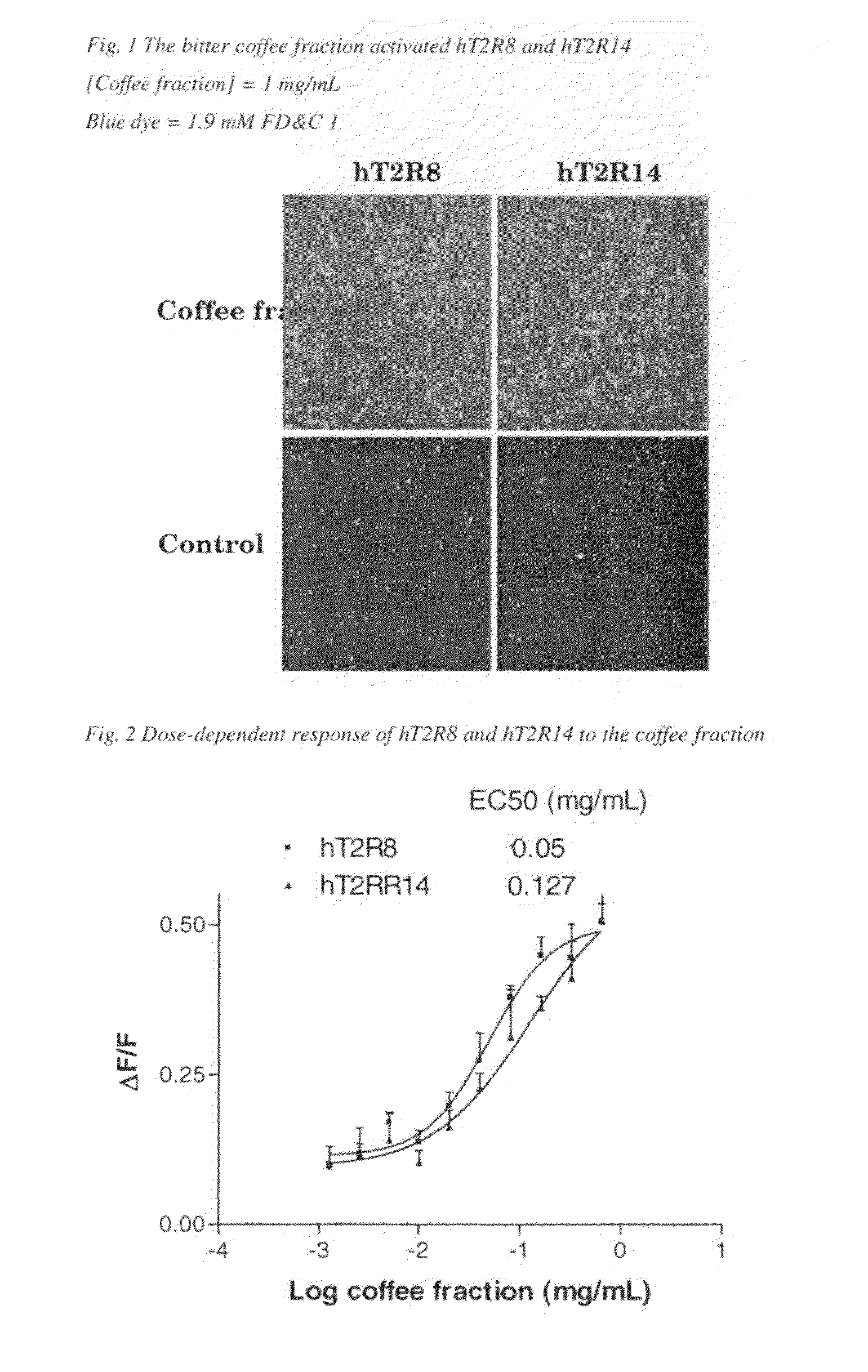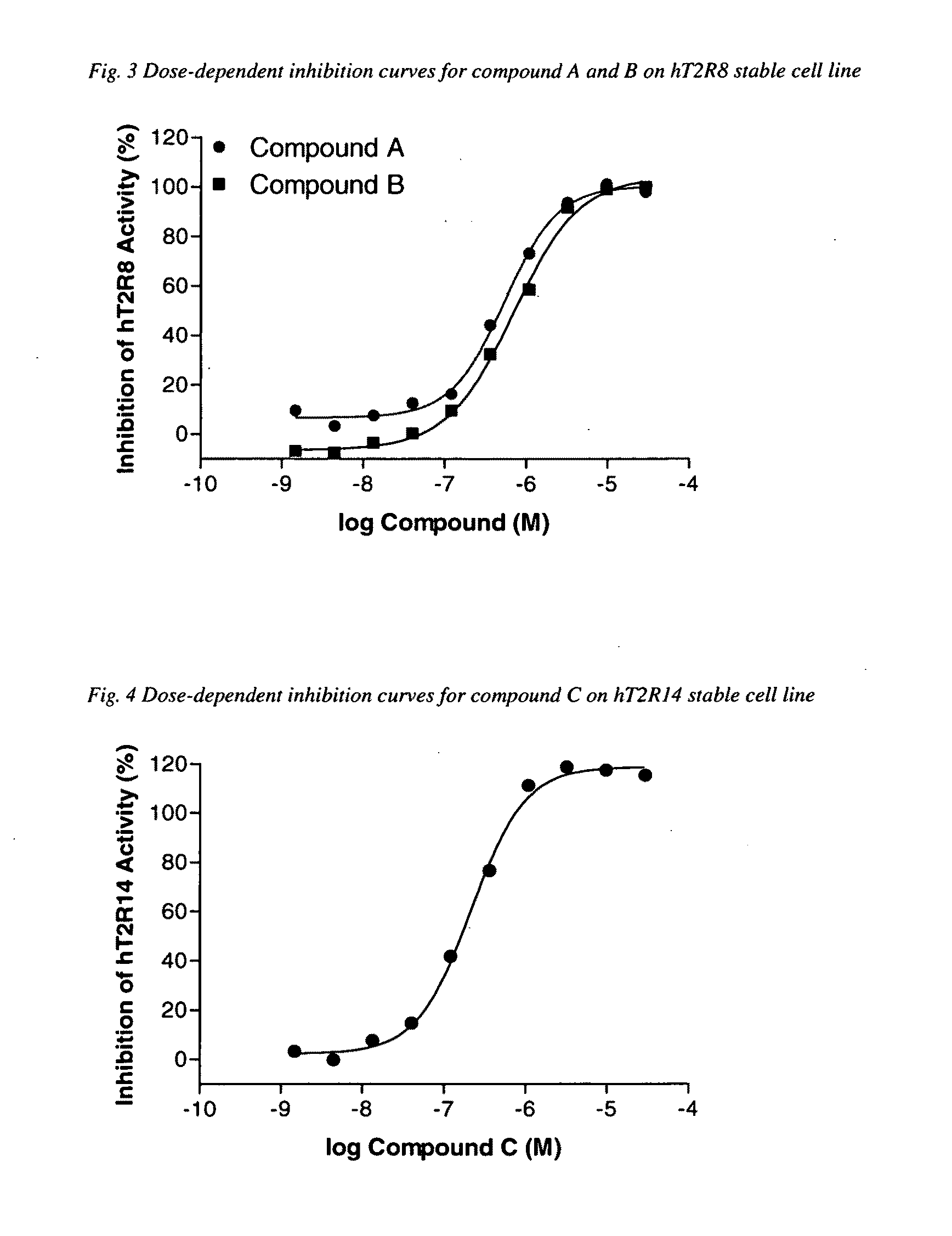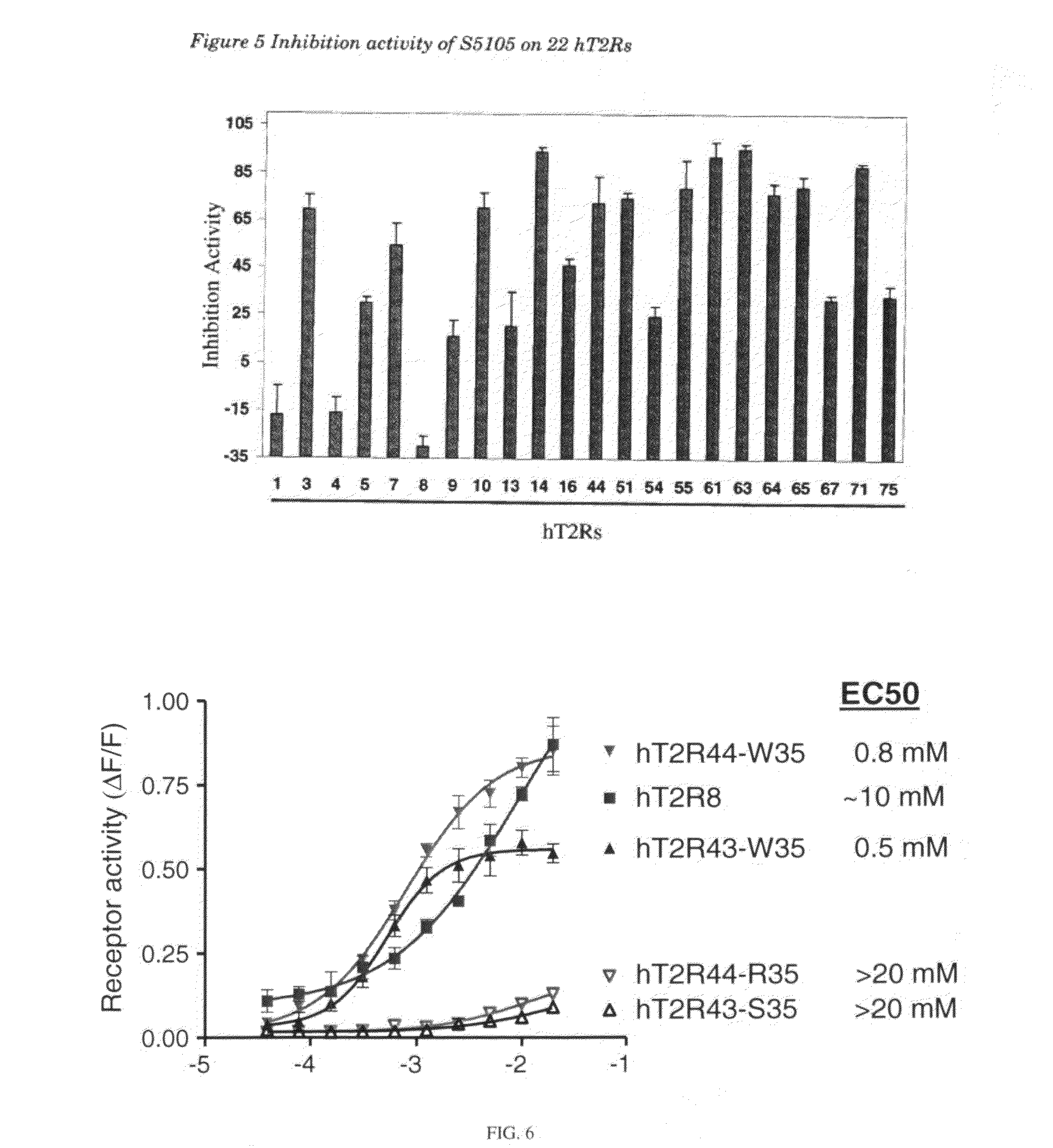Identification of human T2R receptors that respond to bitter compounds that elicit the bitter taste in compositions, and the use thereof in assays to identify compounds that inhibit (block) bitter taste in compositions and use thereof
a technology of t2r receptors and compounds, applied in the field of identification of human t2r receptors, can solve the problems of not being able to match ht2r with specific bitter ligands, receptors that are not readily expressed in cultured mammalian cell lines, and many of them still are not well expressed for functional studies, so as to block the bitter taste of compounds and reduce bitter tas
- Summary
- Abstract
- Description
- Claims
- Application Information
AI Technical Summary
Benefits of technology
Problems solved by technology
Method used
Image
Examples
example 1
[0473]hT2R8 and hT2R14 are Activated by Bitter Coffee Fraction
[0474]A partially purified bitter fraction from coffee was used to screen the 25 human T2Rs in transiently transfected HEK cells as described in previous patent applications. In brief (as discussed in more detail in U.S Patent Publication No. 2003 / 0170608, incorporated herein by reference), human embryonic kidney cells that stably express large T-cell antigen and G15 protein (HEK-G15) were transiently tranfected with an hT2R expression plasmid (e.g., by use of Ca2+ phosphate or by use of lipid-based systems). Additionally, other HEK-G15 cell lines were transiently transfected with other human T2Rs. Thereafter, a fluorescent-based assay was used to detect changes in calcium concentration in the transiently transfected cells. Interaction of the test compound(s) with the transfected cells elicits a signaling cascade leading to the activation of PLC and a subsequent increase in intracellular calcium concentration resulting in...
example 2
[0477]Identification of Antagonists of hT2R8 and hT2R14
[0478]To identify antagonists, cell lines stably expressing hT2R8 and hT2R14, respectively, together with the promiscuous chimeric G16g44 protein were generated as described in previous patent applications. A high-throughput assay was established using the stable cell lines and FLIPR (Fluorescent Imaging Plate Reader). An agonist of hT2R8 or hT2R14 was used to activate the receptors up to 70-80% of their respective maximal activity. For hT2R8, the agonist used was andrographolide (200 μM); for hT2R14, it was aristolochic acid (3 μM). To identify antagonists compounds with diverse chemical structures were added together with the agonist. Compounds that cause statistically significant reduction of the receptor activity are pooled together, and reconfirmed with dose-dependent inhibition curves. Compound A and Compound B were identified as hT2R8 antagonists (FIG. 3). Compound C was identified as an hT2R14 antagonist (FIG. 4).
example 2a
[0479]Combinations hT2R8 and hT2R14 Antagonists Reduce Bitter Taste of Coffee
[0480]Taste tests were performed with combinations of hT2R8 and hT2R14 antagonists in the coffee fraction and two types of instant coffee (medium roast and medium-dark roast), using a 2-alternative forced choice method with a taste panel of 4-5 panelists. Coffee samples with the antagonists were given to the taste panelists together with the same sample without antagonists, the panelists were asked to identify the bitterer sample within the pair. As shown in Table 2, the panelists consistently identified the coffee fraction samples without antagonists as being bitterer than the ones with antagonists, indicating that the antagonists reduced the bitter taste of the coffee fraction. Similarly, as shown in Table 3, the antagonists reduced the bitter taste of both types of instant coffee.
[0481]As demonstrated by the taste tests of this example, the perception of bitterness in compositions (e.g., foods, beverages...
PUM
| Property | Measurement | Unit |
|---|---|---|
| concentration | aaaaa | aaaaa |
| soluble | aaaaa | aaaaa |
Abstract
Description
Claims
Application Information
 Login to View More
Login to View More - R&D
- Intellectual Property
- Life Sciences
- Materials
- Tech Scout
- Unparalleled Data Quality
- Higher Quality Content
- 60% Fewer Hallucinations
Browse by: Latest US Patents, China's latest patents, Technical Efficacy Thesaurus, Application Domain, Technology Topic, Popular Technical Reports.
© 2025 PatSnap. All rights reserved.Legal|Privacy policy|Modern Slavery Act Transparency Statement|Sitemap|About US| Contact US: help@patsnap.com



